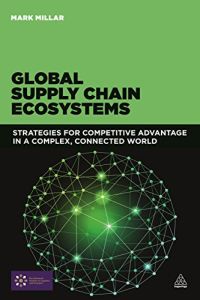Join getAbstract to access the summary!

Join getAbstract to access the summary!
Mark Millar
Global Supply Chain Ecosystems
Strategies for Competitive Advantage in a Complex, Connected World
Kogan Page, 2015
What's inside?
Logistics expert Mark Millar explains what’s trending in today’s globally-connected “supply chain ecosystems.”
Recommendation
Asia expert Mark Millar draws from his hands-on logistics experience as he explains the fundamentals of globally-connected “supply chain ecosystems.” He details visibility-enhancing technology, risk-mitigating measures and innovative concepts, and he describes the global trade potential of sub-Saharan Africa. Millar cites up-to-date research to support his astute observations on trending topics in the transportation industry. getAbstract recommends his guide to investors, transport professionals, logistics experts and leaders in supply chain management.
Summary
About the Author
Mark Millar is managing partner of M Power Associates, a consultancy on supply chains and logistics in Asia. He is a frequent speaker, moderator and conference chair at industry events.


















Comment on this summary